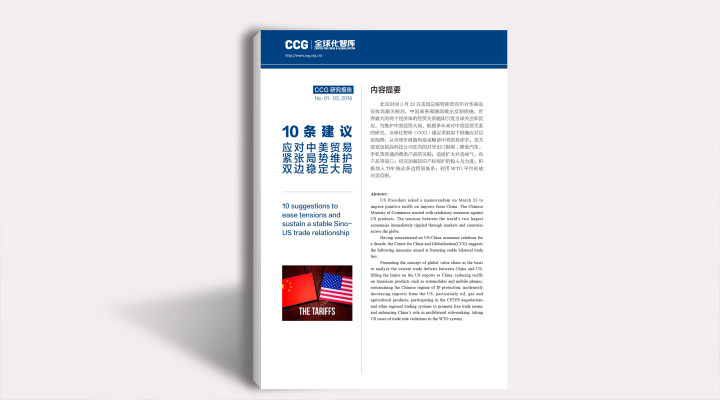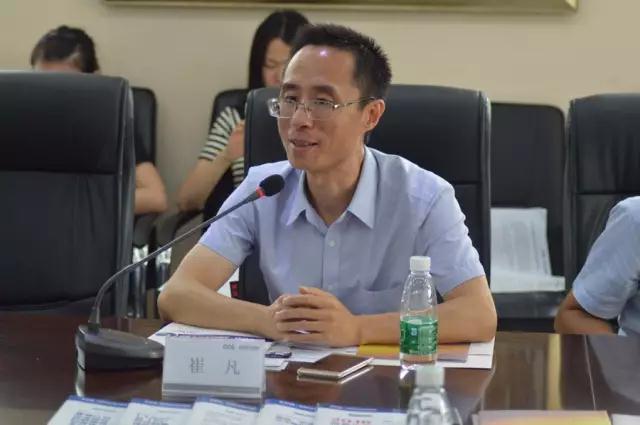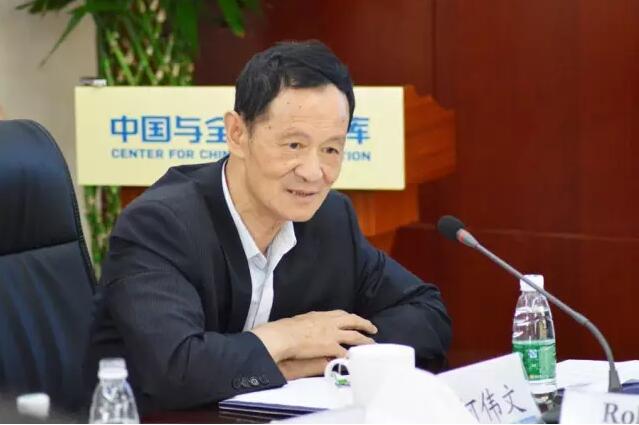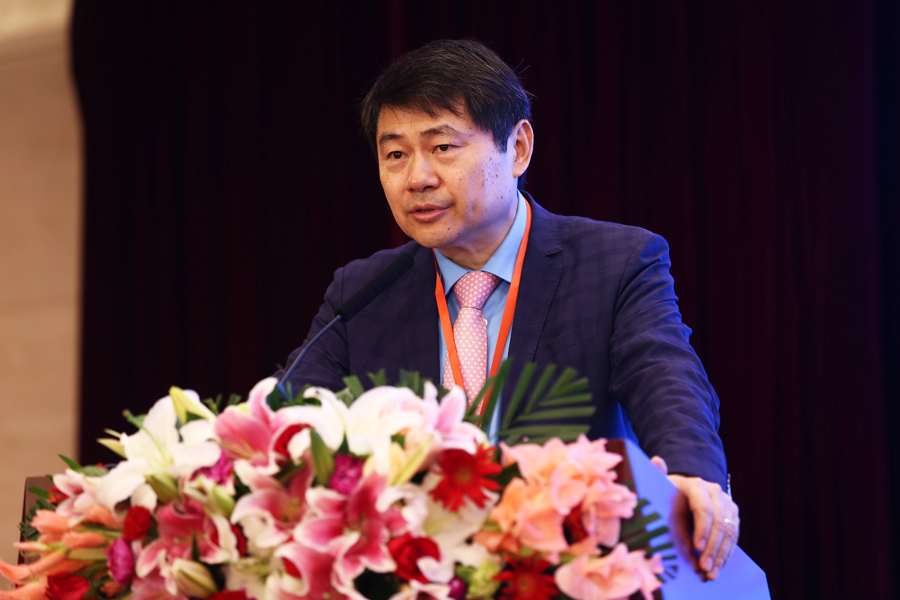Global governance, international organizations, regional cooperation and the Belt and Road Initiative (BRI) are key subjects of CCG's globalization research. As China's first think tank named and dedicated to globalization, CCG founded the China and Globalization Forum and contributes to international discussions related to globalization. It has organized seminars under themes such as WTO reform, multilateral governance, and the BRI. CCG was the first body to hold a BRI-themed event at the Munich Security Conference, a world-leading conference in the field of international security and governance.
Based on years of research in the field of globalization, CCG has published numerous research reports and books, including Win-Win International Cooperation and Path to Achievement of the Belt and Road, Globalization and Anti-Globalization and What’s Next for Globalization? Great Changes and China’s Proposed Approaches. The Handbook on China and Globalization published by Edward Elgar Publishing is one of the few books published in English by a Chinese think tank with an authoritative international academic publisher. Two of the CCG's initiatives were selected for inclusion in the first Paris Peace Forum, pioneering a new model for Chinese think tanks to fully participate in global governance and international cooperation. In addition, CCG has long-term cooperation with the WTO, UN, OECD, World Bank, IMF and many other international organizations, international think tanks and related institutions.
-

10 suggestions to ease tensions and sustain a stable Sino-US trade relationship
Abstract:US President inked a memorandum on March 23 to impose punitive tariffs on imports from China. The Chinese Ministry of Commerce reacted with retaliatory measures against US products. The tensions between the world’s two largest economies immediately rippled through markets and countries across the globe.Having concentrated on US-China economic relations for a decade, the Center for China and Globalization(CCG) suggests the following measures aimed at fostering stable bilateral trade ties:Promoting the concept of global value chain as the basis to analyze the current trade deficits between China and US; lifting the limits on the US exports to China; reducing tariffs on American products such as automobiles and mobile phones; reexamining the Chinese regime of IP protection; moderately increasing imports from the US, particularly oil, gas and agricultural products; participating in the CPTPP negotiations and other regional trading systems to promote free trade norms and enhancing China’s role in multilateral rule-making; taking US cases of trade rule violations to the WTO system.Summary:CCG recommends that the Chinese Government moderate its response to US actions and continue to adhere to the goal of long term stable economic and trade relations between the two nations via the following 10 suggestions:1. Campaign for a new mode of analyzing trade effects that would more accurately reflect how much US companies gain from the bilateral trade deficit, given the forces of the global value chains; and insist on including trade in services which China runs a large deficit with the US, such as tourism, education spending, immigration-oriented investments in the trade deficit analysis.
July 19 , 2018 -

Cui Fan: Negotiations still best way to end disputes
Cui Fan, Non-resident senior fellow with the Center for China and Globalization (CCG) and a professor at the University of International Business and Economics The latest US investigation into China’s intellectual property policies and practices under Section 301 of the Trade Act of 1974 is not the first of its kind. But the US has rarely used Section 301 against China after the latter’s accession to the World Trade Organization in 2001, because the WTO mechanism offers a fairer, more comprehensive solution to bilateral trade disputes.
August 27 , 2017 -

Sun Zhe: Reciprocal thinking should prevail
Sun Zhe, an acdemic adivisor of the Center for China and Globalization (CCG) and director of the Center of China-US Relations at Tsinghua University. Intellectual property has been a constant issue in China-US trade disputes since the 1980s, a time when the US and Japan were locked in an enduring trade war over steel, intellectual property and automobiles. During those days Robert Lighthizer, incumbent US Trade Representative, established his credentials by leading a campaign of voluntary restraint agreements, countervailing duties and anti-dumping duties against Japanese imports. He might try to do the same against China.
August 24 , 2017 -

He Weiwen: Dialogue works better than threat on IP issues
The United States has launched an investigation to determine whether China has indulged in "forced transfer of American technologies and theft of American intellectual property". US Trade Representative Robert Lighthizer subsequently announced an investigation into IP issues relating to China under Section 301 of the US Trade Act of 1974.
August 23 , 2017 -

Wang Huiyao: Exam’s resumption was start of a new era
China will mark the 40th anniversary of reform and opening up later this year. As a matter of fact, the real starting point of China’s reform and opening-up policies was the national college entry examination in the winter of 1977, the first after university education was reinstalled. China will mark the 40th anniversary of reform and opening up later this year. As a matter of fact, the real starting point of China’s reform and opening-up policies was the national college entry examination in the winter of 1977, the first after university education was reinstalled.
August 11 , 2017


